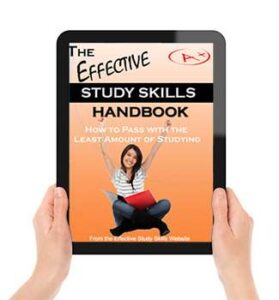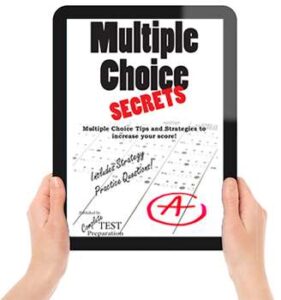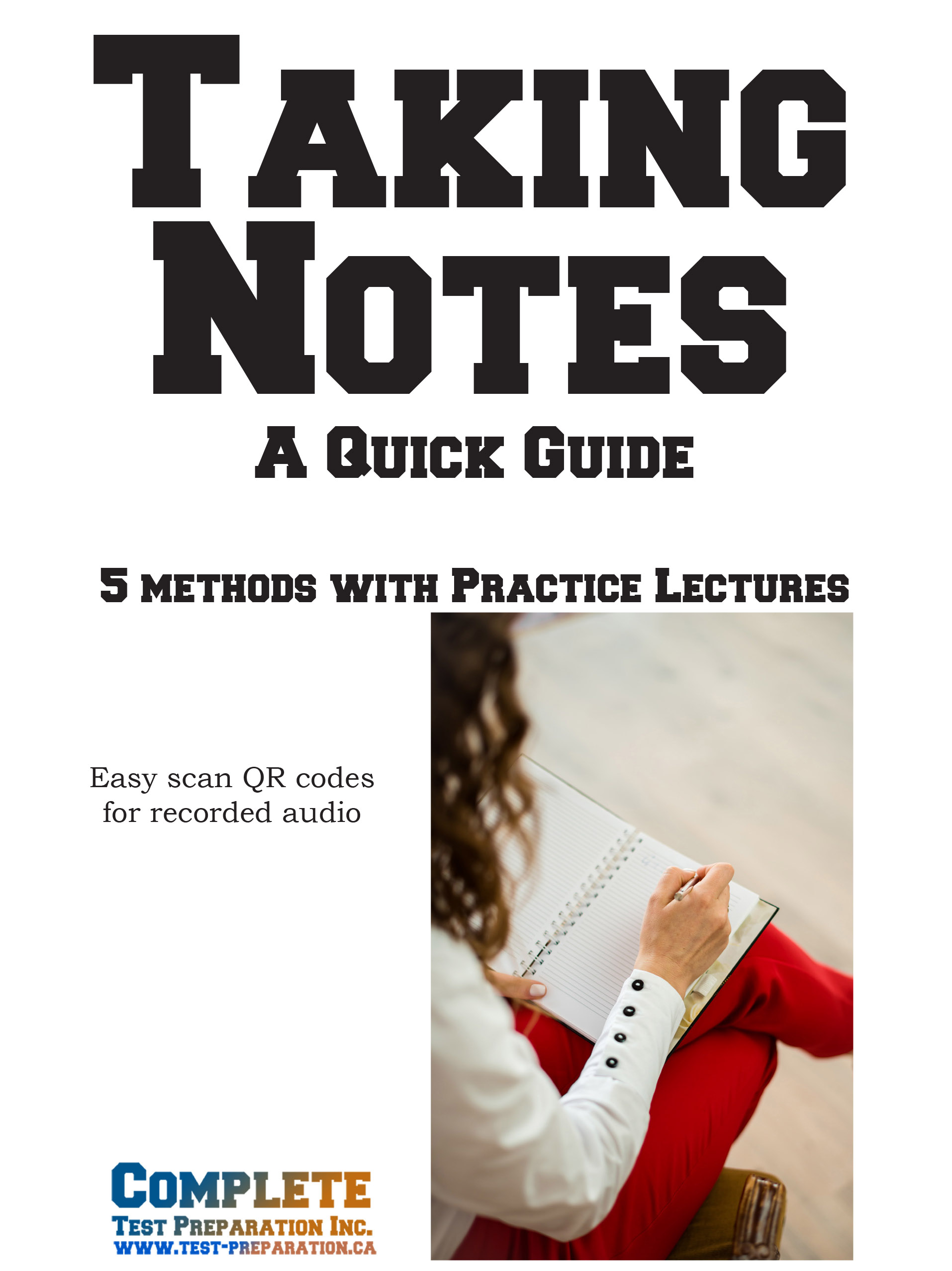Whats the Difference Between a Quiz, Test, and Exam?
- Posted by Brian Stocker MA
- Date March 18, 2011
- Comments 17 comments
Quiz? Test? Exam?
You’re in school, it’s close to Christmas, and on the same day, one instructor tells you there’s a quiz coming, a second says there’s a test next week, while a third tells you to prepare for the upcoming exam. ARRRGH! A quiz, a test, and an exam, all coming soon. But what’s the difference? Are they all the same thing, are they different, and which is more important to your grade point average?
Audio Version of this Post
Different but the Same
First, yes, they’re the same, and yes, they’re different. Confused? Let’s explore the subject a bit then. Your thesaurus is likely to say that all three of these words are interchangeable. And in fact, sometimes they are used interchangeably. “Test” and “exam” especially are often used in the same context. However, especially in high school and college, there are subtle differences.
Quizzes
A quiz is usually a short test, and it usually does not have as much impact on your grade as a test has. In fact, some instructors don’t use the quiz grade at all in determining your course grade. Usually, those who use quizzes have several throughout a unit. The instructor uses them just to check up on how well you’re understanding the material. While a test might have 40 or 50 questions on it, a quiz might instead have just 8 or 10. Although they vary according to the instructor, quizzes are often heavy in multiple choice, true-false, and sometimes fill-in-the-blank questions. They don’t often have interpretive questions such as essay questions.
Study Strategy for Quizzes
Quizzes are shorter and cover specific information in more detail. Study strategies for a quiz
- Reviewing class notes and textbook sections related to the quiz material
- Creating flashcards with key terms and concepts Complete Guide to flashcards
- Practicing with sample questions or past quizzes to test your understanding Practice questions
- Ask for clarification on specific topics or areas you are unsure about. If you don’t understand something, stop and figure it out. Don’t continue until you have sorted it out. Especially studying math
Tests
These are the standard evaluation technique used to determine your grade in both high school and college classes. Unlike with quizzes, the test score is almost certain to be used in determining your grade in the class. In fact, some instructors use test grades exclusively to decide your grade. Whereas a quiz usually gauges your understanding of short sections of a unit, a test normally covers a longer chunk of the course: a whole unit or several chapters. For this reason, tests are commonly longer than quizzes. Again, the makeup of the test will vary according to the instructor, but it’s common for the test to consist of several different types of questions: multiple choice, true-false, fill-in-the-blank questions, matching, listing, and / or essay questions.
Exams
Many instructors use “test” and “exam” interchangeably, but for students, an exam refers to either a mid-term or final exam. It’s the granddaddy of tests in both high school and college. You can expect that an exam will be long (long enough that most college instructors allow hours rather than minutes for it to be taken). It has to be long: Most exams will cover all of the material that the course has covered so far. Although some instructors don’t use exams at all, those who do frequently make it a large part of your final grade for the term. For instance, some instructors consider the exam grade as one third of your total score for the class.
Studying for Exams
Exams are longer and cover a wider range of material and are typically more general. Study strategies for an exam include:
- Reviewing all class notes, handouts, and textbook chapters related to the exam material How to study textbooks
- Creating an outline or summary of key concepts and themes Making a study schedule
- Practicing with sample questions or past exams to test your understanding Practice questions
- Creating and reviewing flashcards with key terms and concepts How to use flashcards
- Using mnemonic devices to help remember specific information Using mnemonics Memory Palace
- Discussing the material with classmates and asking questions to test your understanding Study Groups
- Taking breaks and getting plenty of rest to help your brain retain the information better.
Priorities
Obviously, of the three, the exam is usually more important than any single test or quiz. However, if you do well enough on all of the tests, that detracts some from the importance of the midterm or final exam. Generally, there’s no reason to stress too much about quizzes. A brief hour or two of studying should be enough for them. However, for tests and exams, the best strategy is to keep up with the work and study a bit in your notes and textbook each evening.
Don’t Nickel and Dime yourself to death!
Don’t ignore quizzes! While most quizzes may only account for 10 or 15% of your mark, they do add up and if you aren’t careful, at the end of the term a series of low marks on quizzes will push your average mark down so low that you will have to get a perfect score on the final just to pass.
How to Study

… without endless hours of cramming
… without the need for tutoring
… and without sacrificing the things that matter to you!
Multiple Choice Secrets!

How to Take Notes
Learn 5 Note Taking Methods – With Full Explanation and Examples!
Taking notes is an essential academic skill and you will be doing a LOT!
Learn More and Start Practicing
Date Published: Friday, March 18th, 2011
Date Modified: Thursday, November 13th, 2025
You may also like
The Canadian Red Seal Roadmap: Your Path to Certification
This roadmap outlines the typical journey from your first entrance exam to becoming a nationally recognized Red Seal Journeyperson.
English Language Tests for Canadian Citizenship
English Language Test is an assessment that measures your English proficiency and is a required component in the Canadian citizenship application process. The purpose is to make sure you have adequate knowledge and fluency in English to communicate and integrate …
Map Reading Practice for CritiCall, Firefighter, and Police Exams (Canada)
Does the map reading section of your upcoming Police Dispatch or Firefighter exam have you feeling lost? You aren’t alone. Spatial orientation and map reading questions are among the most intimidating parts of emergency service entrance exams. Why? Because in …


17 Comments
thanks. i also did not consider the word test to differ from exam. i now understand the difference
thanks alot.
I love quizzes, tests and exams. But i think i prefer quizes. Our teacher pops out quizzes sometimes without warning.
Nice clarification really
Thanks a lot
hey that was a good explanation
the question is, can i define exams and tests as one, as the same entity.
Sure – that is a broad definition but good!
thanks
Very clear explanation. But can I consider quiz as a preparation for the test?
Sure that is one way to look at it!
That was a clear explanation but I also want to know what continuous assessment is all about
test and exam they the same thing jooooooooooooooooooo
thank you 🙂
this is so well and kindly explained that this site being from Canada was no surprise at all 🙂
Hello there!
I really loved your definitions, I cannot be more agree with you. I just want you to ask something. Where did you find this information? I would like to have some authors :c
Tnx a lot I do love the explanation!
Thank you for this awesome post! I was just puzzled a while ago but all is clear now. I will definitely bookmark this page.
Actually quiz test and exam are very different. I like your explanation.